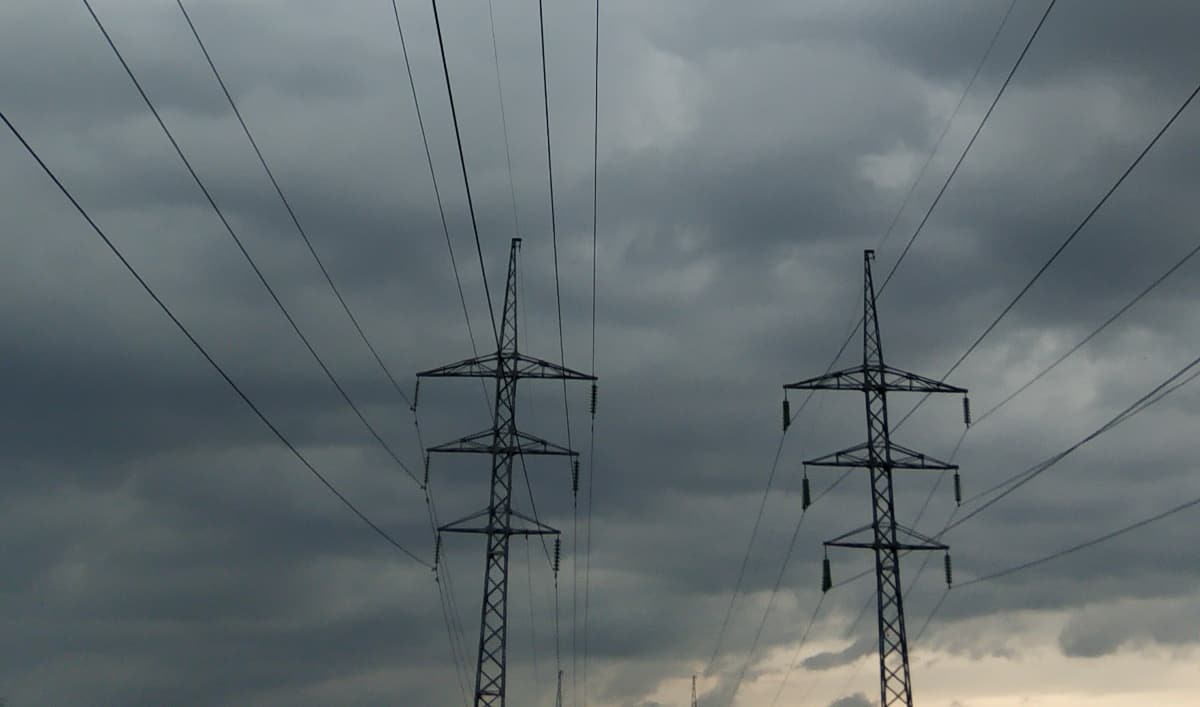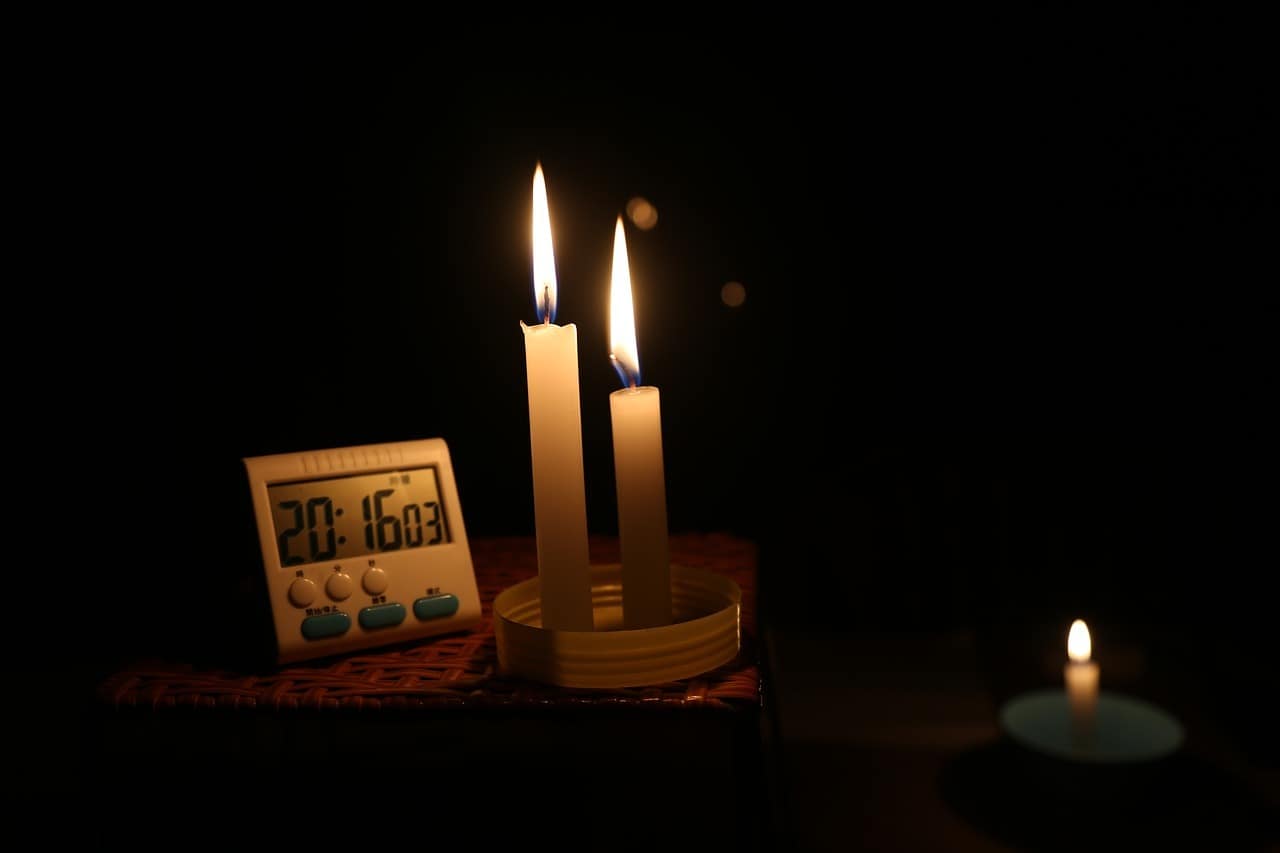Power outages can strike at any time, disrupting our daily lives and leaving us without electricity for hours or sometimes even days. Whether you come home to non-functioning light switches or pleasantly enjoying an evening at home when it happens: the last thing anyone wants to deal with is a power outage. You’ll need to ask the question: Why is my power out? Unfortunately, there are many possible answers as to why the power may be out, and the availability of solutions could impact when the power comes back on.
In this blog, we’ll help you identify various potential causes of power outages, provide practical tips for home safety, and highlight some common challenges you may face during an outage to help you limit damage wherever possible.
What Are Some Common Causes of Power Outages?
Weather-Related Incidents
Severe storms, tornadoes, hurricanes, heavy snow, or even lightning strikes can damage power lines, transformers, and other electrical infrastructure. This, in turn, leads to power outages. The specific damage may not be visible from your house, so you may not know the particular cause until after the storm or the dust has settled. If you are worried about any potential damage to your home, learn more about home insurance policies through the ONIT Home blog.
Rolling Blackouts
If you live in an area of the country where utility companies use rolling blackouts to conserve energy, this could be another cause. These can be either planned rolling blackouts or a more spontaneous reaction during periods of high demand that shed the load. Either way, these controlled power cuts distribute the available electricity between different regions or neighborhoods in the affected area.
Equipment Failure
As equipment and wires age, they can malfunction and fail. This can lead to temporary power disruptions as this equipment or infrastructure is replaced.
Equipment Maintenance
Scheduled maintenance can cause temporary power disruptions, which can be inconvenient, no matter how important you know it to be.
Human Error
Accidents happen. Unfortunately, accidents happen to power lines, too. Power lines can be damaged during construction work, vehicular accidents, or errors made by utility workers. Any of these can also lead to power outages with the right combination of bad luck.

Tips for Protecting Your Home During Power Outages:
As you saw above, most, if not all, of the common causes of power outages are out of your hands as a homeowner or resident. However, there are some things you can do to prepare and minimize any potential fallout.
Prepare an Emergency Kit
Keep a well-stocked emergency kit in your home. The kit should include flashlights, batteries, a battery-powered (or crank-operated) radio, a first aid kit, and non-perishable food items. Think about how many people live in your house and plan for that many flashlights. Do you have any pet items you would want to include in your emergency kit? It is always better to be prepared. Remember to restock this kit if you ever raid it for spare batteries!
Install a Backup Power Source
Consider investing in a backup power generator or an uninterruptible power supply (UPS) to provide temporary power to essential appliances and devices during an outage. A UPS can reliably keep your Wi-FI network running for several hours (depending on the model you choose) or simply keep the power on long enough for you to save your work and shut everything down. A benefit to having a UPS is that you can stay online while the power is off and contact emergency services if required.
A backup power generator typically runs on gasoline, so ensure you’ve accounted for necessary supplies if this one is on your list. Also, ensure proper installation and follow all safety guidelines. Generators should be run outside and away from windows.
Secure Food and Medication
Keep your refrigerator and freezer closed as much as possible to retain the cold air. Most families have a significant amount of food in the fridge and freezer that they do not want to spoil. An unopened refrigerator can keep food cold for about four hours, while a full freezer can maintain its cool temperature for around 48 hours. The key to success is to keep the door closed. Consider using coolers or ice packs for perishable items if the outage persists.
Early in the outage, consider your plan for the fridge and freezer. These will likely be one of your watch areas during the outage, depending on the outage duration. Plan out meals with a strategy in mind – will you open the door once early to eat perishable food for a meal? Or will you eat non-perishable food in favor of not opening the door? Use the information at hand specific to your outage to inform your strategy.
Consider medication access if anyone in your household has refrigerated medications – though it is also a good idea to gather all medications in one area for easy access. If anyone in the household uses a medical device that requires electric power, ensure that you have a strong backup plan or a plan to travel to a safe location—ideally, both.
After an outage, talk to a medical professional about the medications and what ones can be safely used and which should be thrown out.
Protect Sensitive Electronics
Use surge protectors to safeguard computers, televisions, and other sensitive electronic devices from power surges when electricity is restored. If you do not currently use surge protectors, this is well worth it for the additional peace of mind. Alternatively, unplug devices to protect them from a potential surge.
Maintain Alternative Lighting
Have alternatives to electric lighting on hand, such as candles. Ensure you have a reasonable supply of candles, matches, and battery-powered lights or lanterns to keep your house adequately lit during an outage.
If you have young children or curious pets, you may want to err towards battery-powered lights or lanterns to limit fire risk. If that isn’t an option, light candles only in spaces where you or another adult are available to monitor the open flame.
Control Access to a Water Supply
If your home relies on an electric pump for water, consider storing enough water for drinking, cooking, and hygiene purposes. Think through and have a plan in place for alternative water sources, such as storing several gallons in your garage or basement. Potentially install a backup power source for your pump if it makes sense for your situation.

Other Challenges Homeowners Face During Power Outages
The above sections cover the why behind power outages (Why is my power out?) and practical tips for surviving through them, but now we’ll take a step back to look at the bigger picture, which includes other items you may want to prepare for prior to your next possible power outage.
There is no doubt that power outages are challenging, and it is essential to think about your home setup as a whole when planning for power outage preparedness.
Heating and Cooling
Extreme weather conditions can make it challenging to maintain a comfortable indoor temperature without electricity. Depending on where you are located and what season it is, you may want to have alternative heat sources like portable heaters or a fireplace in winter. Blankets will also be helpful.
In hotter weather, take advantage of natural ventilation and shade to assist in house cooling wherever possible. Have manual hand fans around if you live in an area that does not give you much natural help.
Security Concerns
Power outages can affect home security systems, leaving your property vulnerable. Consider having backup security measures, such as battery-operated security cameras or alarms.
If you have a backup power source, consider how that may be able to support your home security setup.
Communication:
Losing power can disrupt normal communication channels, especially if you rely solely on cell or cordless phones. Keep a charged power bank at home and consider alternate communication methods.
This could include a landline phone that does not rely on electricity, or it could involve making use of your uninterrupted power supply (UPS). No matter what, the key is to have a plan so that you have some way to communicate should you need to do so.
Prepare for an Outage Today
Power outages can disrupt our routines and pose various challenges to getting through the day. By understanding the common causes of outages and implementing measures to be prepared, homeowners and residents can minimize the impact on their households when a power outage occurs.
Remember to prioritize safety, protect essential items, such as food and medication, and be ready to adapt to different situations as they come. With the proper precautions and preparation in place, you can weather the storm – or whatever the cause – and stay resilient during power outages.
Need help getting started? Never fear – ONIT Home is here to help you find the right professional in your area. Call us right now at 1-833-433-0331 to get started!



